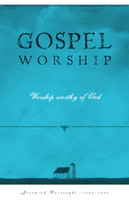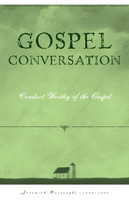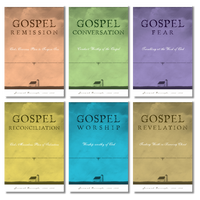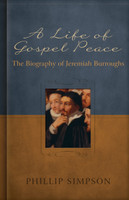Description
In the last of the ‘gospel’ series, Jeremiah Burroughs gives us God’s revelation regarding Himself and regarding His Son, Jesus Christ, And then he gives precious insight into the worth of the human soul, created by to joyously serve and glorify Him. Sin debases a man, but a right relationship to God elevates him to the position of worth and dignity God gave him at first.
Contents
The Nature of God
- Ten Points on the Nature of God
- Eight Additional Points on the Nature of God
- The Application
The Excellency of Christ
- Christ Is the Great Wonder of the World
- Christ Is Wonderful in His Offices
- Christ Is Wonderful in His Miracles
- Christ is Wonderful in the Glory of the Father, Part 1
- Christ is Wonderful in the Glory of the Father, Part 2
- The Application
The Excellency of the Soul
- The Soul is Worth More Than All the World
- The Application of the First Point
- The Loss of the Soul Is a Dreadful Loss
- The Eternal Loss of the Soul
- The Application
- A Sixth Use of the Doctrine
- Questions and Objections
- What Must We Know to Be Saved?
- The World Is Not Worth a Single Soul
The Gospel Life Series
Paul write to Titus that we are to adorn the doctrine of God in all things. This series of books by Jeremiah Burroughs, Puritan preacher in London in the 1600s, shows us how to do just that. We are to adorn the doctrine of God in our worship (Gospel Worship); we are to adorn the doctrine of God in our reverence (Gospel Fear); and we are to adorn the doctrine of God in our conduct (Gospel Conversation). To adorn the doctrine of God, we must know God and Christ (Gospel Revelation); we must know the blessedness that comes from having our sins forgiven (Gospel Remission); and we must know the marvelous plan of salvation that God offers to us (Gospel Reconciliation).
About the Author
Jeremiah Burroughs (1599-1646) was loved for his preaching and gentle spirit and was persecuted for his nonconformity to the Church of England. Feeling compelled to flee to Holland for a time, he eventually returned to England and preached to congregations in Stepney and Cripplegate in London, two of the largest congregations in England. He also served as a member of the Westminster Assembly until his death in 1646.






